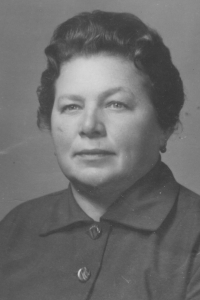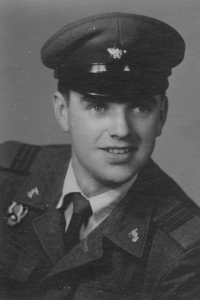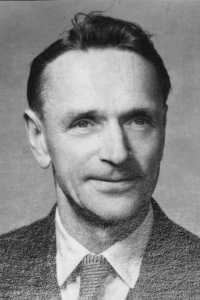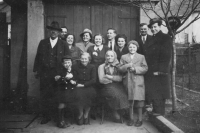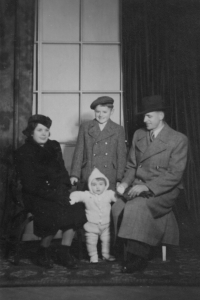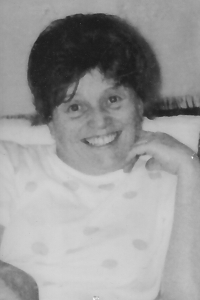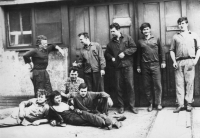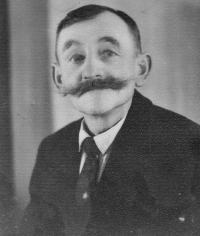Looking down the tank gun barrel in his militia uniform in August 1968

Download image
Karel Sláma was born in Dobroměřice near Louny on 24 November 1939. He lost his mother at age four and his father remarried. The entire family’s life revolved around the Berman porcelain factory in Louny where they worked and where Karel Sláma spent his entire career. His earliest childhood memories include his first kiss overlooking bombed-out Dresden, tales of a death march going through nearby Lenešice, building a home bunker, and hiding from the Vlasov troops. His lifelong political stance was formed by the miners’ strike in Duchcov of 1931 at which gendarmes shot a friend of his grandfather who was already a convinced communist. This is why the family took 1948 as a satisfaction and supported the regime all their lives. Karel Sláma became an apprentice fitter at the Louny ceramics factory and took part in the Spartakiada at Strahov in 1955. As a young glider pilot, he wanted to join the air force, but ended up with the Border Guard near Aš and joined the Communist Party of Czechoslovakia (KSČ/CPC). Following military service, he joined the People’s Militia at the porcelain plant where he worked. He married Bohumila Slámová in 1962, founded a housing cooperative and organised the construction of 48 flats. Their son Martin was born three years later. When Warsaw Pact troops invaded in 1968, he took part in the People’s Militia’s mobilisation in the plant surrounded by tanks. He negotiated with the Soviet army and hid the militiamen’s weapons from the factory employees to avoid provocations. He criticised the attitude of many communists at the time who supported Alexander Dubček and, in his view, left the Communist Party internally divided, leading to its collapse in 1989. He retired in 2000 and was widowed 14 years later. Communism became the ideology he believed in and still lives for. He was living in Louny in 2024.
